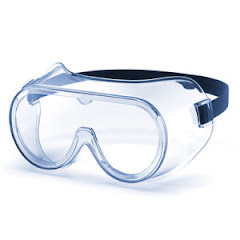Common Questions Asked in Interview for the post of Synthesis Chemist | Analytical Chemist | Quality Control Chemist
Question 1) What is Good manufacturing practices (GMP)?
Answer:
Good manufacturing practices are regulation, codes, and guidelines for the manufacture of drug products, medical devices, in vitro and in vitro diagnostic products, foods. The term “cGMP” is used by the federal government as a current good manufacturing practice.
Question 2) What is GLP?
Answer:
GLP stands for Good Laboratory Practice. It is a quality control system used in research laboratories to ensure data integrity( i.e. data is generated under high quality and reproducible conditions). enable mutual acceptance of data between countries.
Question 3) What are the Rules of lab safety?
Answer:
Rule 1:WALK
When going into the lab make sure to WALK. there will be no running in the lab. There will be materials and equipment out that can break if you accidentally knock into them. There may be electrical wires on the ground that you may trip over as well. DO NOT RUSH. Walk slowly and be careful.
Rule 2: PROPER LAB ATTIRE
You have been given a schedule of when our labs will be held. The day before we do a lab will remind you so that you can come to class prepared with proper lab attire.
Proper attire is as follows:
Rule 3: HANDLING CHEMICALS
When handling chemicals during lab it is important to proceed with caution. Wear gloves whenever pouring chemicals or handling them. If there is a spill be sure to let the teacher know. If you have to dispose of chemicals, always use the waste containers provided on your lab tables. NEVER POUR THE CHEMICALS BACK INTO THE CONTAINER YOU GOT IT FROM. If you do, whatever was in your container could cause a chemical reaction with the chemical in the original container.
NEVER SMELL A CHEMICAL DIRECTLY. You can fan the fumes toward yourself. You can do this by waving your hands over the flask or beaker (I will demonstrate).
Rule 4: HANDLING EQUIPMENT
It is important that when you are using different lab equipment, you handle them with care. The microscope should be held with both hands, one underneath, and one on the arm. When handling glassware be sure to hold it with both hands when can. If something is hot, then make sure to use a pair of tongs. NEVER USE YOUR HANDS.
Rule 5: HAND WASHING
BEFORE LEAVING THE LAB ALWAYS WASH YOUR HANDS. Make sure you use soap and water and rub your hands thoroughly at the handwashing station. Some of the materials we will be using could be harmful to you, so you must wash your hands so you do not get sick.
Question 4) What is the main purpose of the chemistry laboratory?
Answer:
The purpose of the laboratory component of the course is several-fold. It reinforces the material you have learned in a class and it gives a chance to apply your knowledge. You will learn some important experimental techniques that are necessary for you to become an effective chemist.
Question 5) What is meant by QMS?
Answer:
A quality management system (QMS) is defined as a formalized system that documents processes, procedures, and responsibilities for achieving quality policies and objectives.
Question 6) What is the difference between QA and QC?
Answer:
QA is a set of activities for ensuring quality in the processes by which products are developed. QC is a set of activities for ensuring the quality of products. The activities focus on identifying defects in the actual products produced. QA aims to prevent defects with a focus on the process used to make the product.
Question 7) How do you behave in a lab?
Answer:
Dress for lab work. Roll up your sleeves and keep long hair tied back. Wear shoes that are closed-toe, low heeled, and cover your entire foot. Wear clothes that cover your whole body, such as long pants or long skirts. jewelry and contacts should not be worn in the lab.
Question 8) What is SOP?
Answer:
A standard operating procedure (SOP) is a set of step by step instructions compiled by an organization to help workers carry out complex routine operations. SOPs aim to achieve efficiency, quality output, and uniformity.of performance while reducing miscommunication and failure to comply with industry regulation.








Comments
Post a Comment